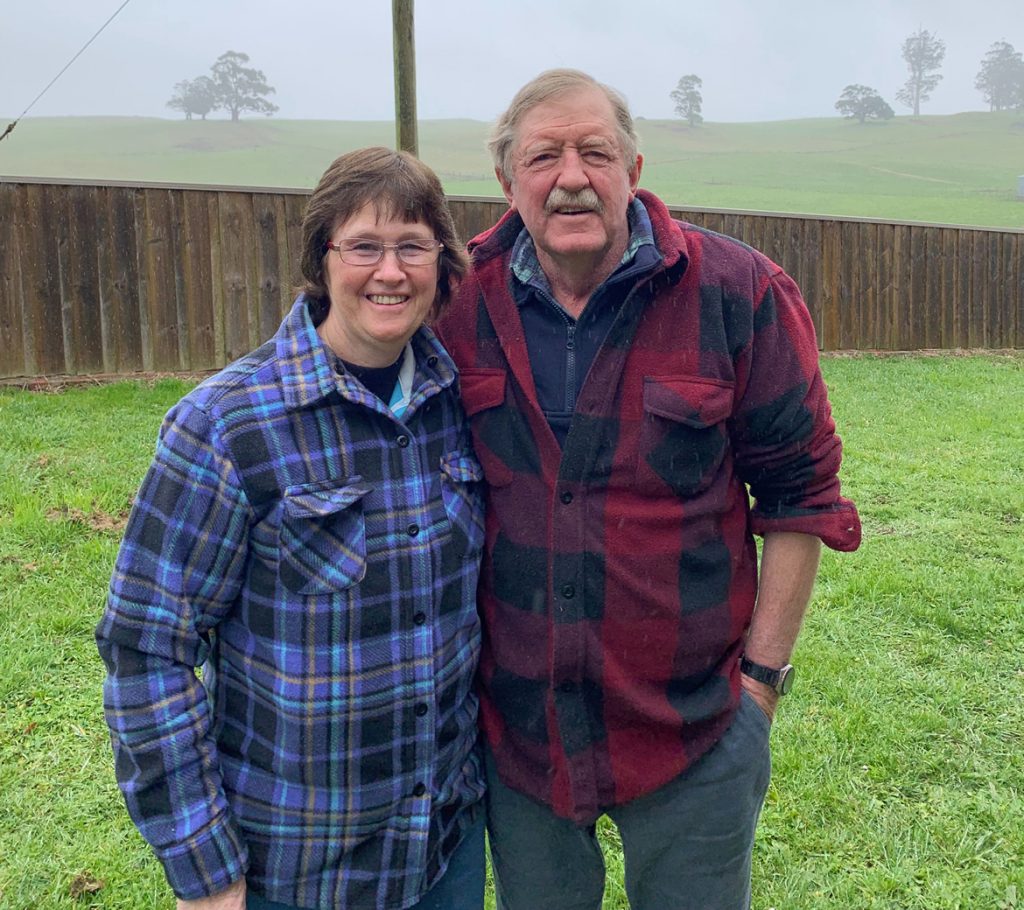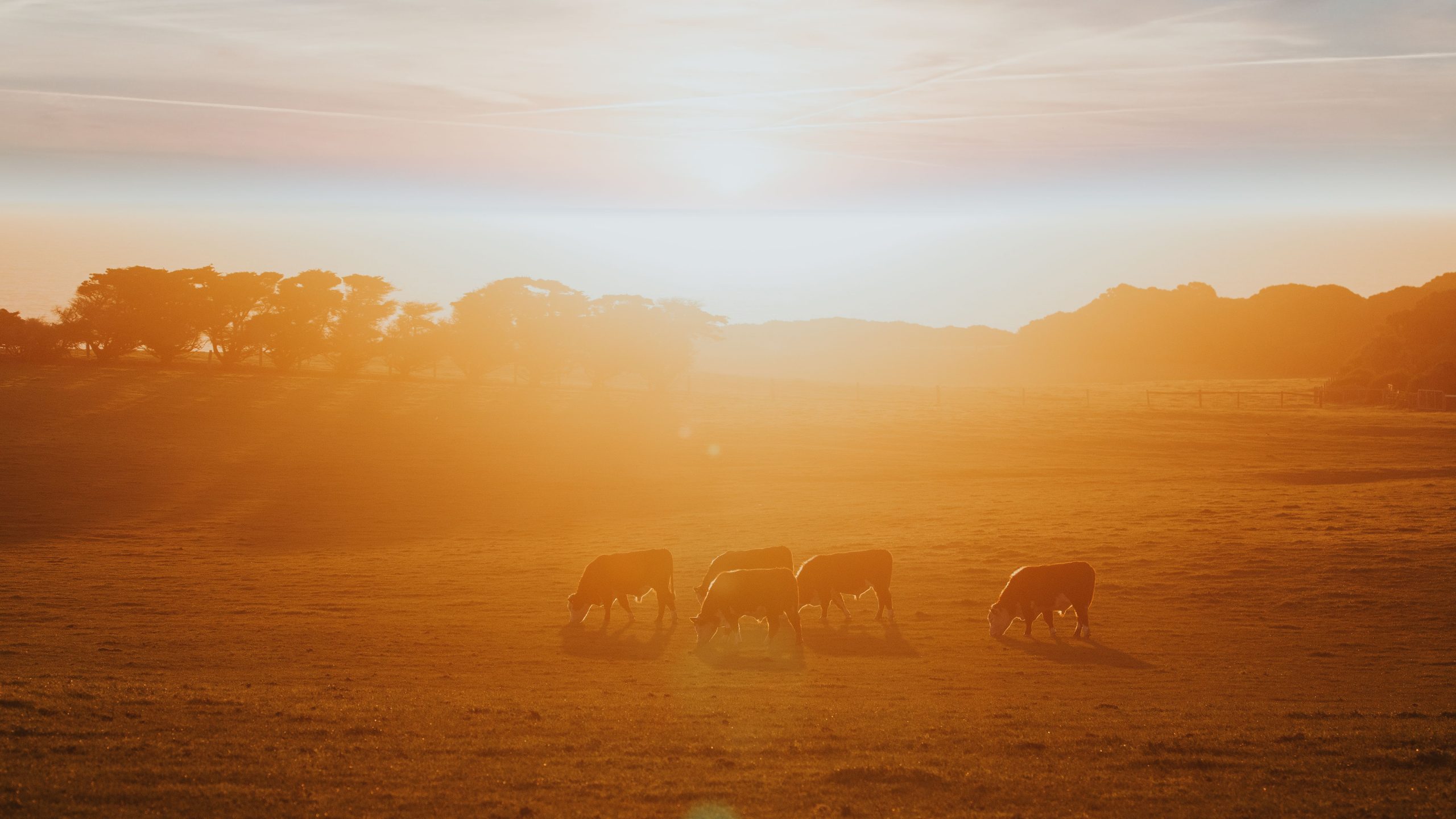When Kevin and Gill Johnson changed their farming operation to focus on beef cattle, after 45 years as dairy producers, one of their first priorities was to learn more about Meat Standards Australia (MSA).
They became registered MSA producers in 2012 – a decision that paved the way for the fourth-generation producers to join the Greenham NEVER EVER Beef Program, with their grassfed cattle used for Greenham’s premium Cape Grim branded beef.
They haven’t looked back and have now won the 2021 MSA Excellence in Eating Quality Awards in the category for Most Outstanding MSA Beef Producers – Band 1, for Tasmania, based on their 99.75% compliance to MSA requirements and an average MSA Index of 62.97 during 2019-21 financial years.
The Johnson’s property at Preston in northwest Tasmania receives an annual average rainfall of 1,300mm and when combined with ferrosol soils, results in prime pastures ideal for finishing cattle.
Kevin and Gill run between 180-230 head of predominantly Angus cattle, purchased as young stock from the local saleyards.
When selecting cattle for their finishing operation, Kevin said they looked for quality types around 280-380kg, to be finished at a target carcase weight of 360-390kg.
“Initially, we registered with the MSA program because it was good for business, but we have seen many benefits,” Kevin said.
“All our cattle are MSA graded with our processor paying premiums for the higher graded cattle. Accessing the grading data also helps us with management decisions.”
Perennial ryegrass forms the dominant pasture on their property, with the Johnsons’ cattle finished on pastures and a supplementary feed of their own silage.
“Our growth targets are 1kg per day and then up to 10kg per week during the finishing period while having cattle on a rising plane of nutrition,” Kevin said.
“We feed silage made on- property during the finishing period and from May through winter, as well as when supplementary feed is required due to seasonal conditions.”
The Johnsons believe that managing their cattle using low stress handling techniques is vital for calm cattle and ultimately, meat quality.
With that in mind, they keep big changes to a minimum close to sale time.
This includes not mixing cattle from different mobs for at least three weeks prior to processing.
They have found from experience that keeping cattle within the mobs they are familiar with keeps them as calm as possible close to sale time, which helps to combat the issue of dark cutting.
Kevin and Gill receive carcase feedback reports from Greenham once their cattle have been processed, with the comprehensive reports including MSA Indexes.
Gill said the data in the feedback reports, including marbling, pH, and ossification results are used to guide on-farm decisions and help them determine preferred suppliers.
“Those reports give us a lot of important information and we take that into account,” Gill said.
“If we can, we will purchase from the same producers based on those reports or buy cattle that have good genetic traits, guided by the data.
“As a producer, these benchmarks are what you should be aiming for – good weights, good fat cover and good MSA Index scores. Being part of MSA is definitely worth it.
“We would also like to thank our local carrier, Chris Williams for taking such care with our cattle.”














